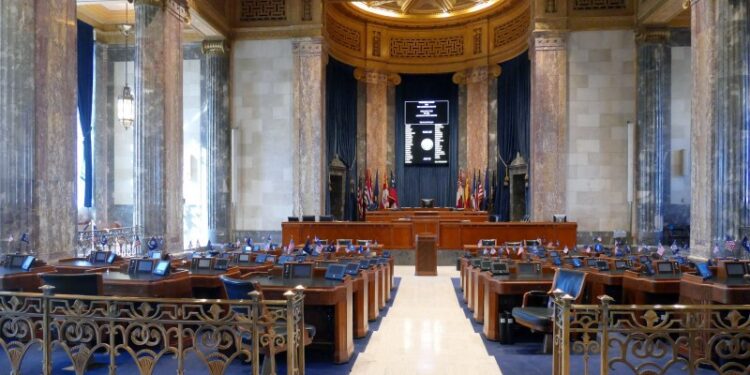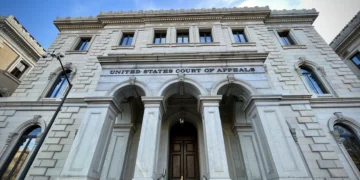March 18, 2025 Story by: Editor
A study conducted by New York University reveals that fairer electoral maps lead to increased voter turnout. According to the report, Black voter participation was higher in Louisiana’s newly formed majority-Black 6th Congressional District during the November 2024 election compared to those who were redistricted into majority-white districts.
The Brennan Center for Justice, a nonpartisan legal and political think tank at NYU Law School, released the report last week. Researchers examined voter turnout in three newly established majority-Black congressional districts in Louisiana, Alabama, and Georgia. Their findings indicate a common trend—Black voters turned out in higher numbers when they were placed in majority-Black districts.
In Louisiana, the study found a two-percent difference in turnout between Black voters in majority-Black districts and those in majority-white districts. While the percentage may seem small, the report emphasized that it represents thousands of additional voters.
Kareem Clayton, vice president of the Brennan Center’s Washington, D.C. office, noted that the turnout disparity between Black and white voters continues to widen, particularly in the South. White voters typically participate at higher rates, but Clayton pointed out that enforcing voting rights laws helps increase Black voter participation by allowing them to elect their preferred candidates. A separate Brennan Center report from March 2024 highlighted that Louisiana has one of the largest racial turnout gaps in the country.
“Having this district around is better than not having this district around with respect to turnout, boosting turnout among African Americans,” Clayton said.
Robert Collins, a professor of urban studies and public policy at Dillard University, was not surprised by the report’s conclusions. “Black majority districts turn out more voters simply because Black voters feel that they have the opportunity to actually elect a Black public official to that particular office,” Collins explained.
In the November election, the newly created 6th district elected U.S. Rep. Cleo Fields. Previously, the district had a majority-white population and was represented by Garret Graves, who opted not to seek reelection after the redistricting.
Ashley Shelton, executive director of the voter engagement group Power Coalition for Equity and Justice, told Verite News that the report aligns with patterns her organization observed in the last election cycle. She noted that her organization tripled its planned voter outreach events across the state, with particular focus on the 6th district, where heightened engagement was evident.
“This district being created was a really powerful moment to honor the reality that 30% plus of this state is African American, and deserve to be able to elect a candidate of choice, just like everyone else in the state,” Shelton stated.
Shelton also suggested that the increased interest in the election was influenced by multiple factors, including the presidential election and the novelty of the district itself.
The new congressional map was enacted in January 2024 following years of legal battles and advocacy from civil rights groups. The redistricting process began after the 2020 census, which showed a 5 percent decline in Louisiana’s white population. Initially, the Republican-controlled state legislature proposed a map maintaining just one majority-Black district out of six, the same configuration as before.
In response, civil rights groups and residents sued the state in 2022, arguing that the map diluted Black voting power in violation of Section 2 of the Voting Rights Act, which prohibits racial discrimination in elections. Plaintiffs contended that, given that approximately one-third of Louisiana’s population is Black, two of its six congressional districts should be majority-Black. A federal appeals court determined that the initial map likely violated the Voting Rights Act, ultimately leading to the establishment of two majority-Black districts.
However, opposition to the new map emerged, with a group of non-Black voters filing a lawsuit against Secretary of State Nancy Landry, claiming that the redistricting constituted unconstitutional racial gerrymandering. Under the 14th Amendment, race can be a factor in redistricting but cannot be the predominant factor, Collins explained. A three-judge federal panel ruled last year that race was improperly prioritized in drawing the map. However, the U.S. Supreme Court allowed the map to be used for the November election in an emergency ruling.
The Supreme Court has yet to issue a final verdict on the matter. In November, the court announced that it would review the case and scheduled oral arguments for March 24.
Both Collins and Shelton believe that the Supreme Court will ultimately uphold the two majority-Black districts. Unlike racial gerrymandering, political gerrymandering is permissible, and both experts argued that the redistricting was primarily politically motivated. They pointed out that former Congressman Graves had alienated fellow Louisiana Republicans by refusing to endorse Jeff Landry in the 2023 gubernatorial race. During federal court testimony in April, State Rep. Mandie Landry, D-New Orleans, claimed that the governor sought to redraw the district map to prevent Graves from securing reelection.
Clayton emphasized that further research is necessary to assess long-term voter turnout trends should the Supreme Court uphold the current map.
Comparing Black voter turnout in 2024 to past elections is challenging, Clayton noted, because the district’s geographic boundaries have changed. However, he stressed that the enforcement of the Voting Rights Act is playing a crucial role in increasing Black voter participation.
“It’s just an indication that there’s still work to be done, but also that when you actually receive the work and get remedies that are responsive to communities of color, you can see marked differences in their level of turnout,” Clayton said. “And that’s hopeful news as we’re thinking about ways of again, closing that still growing turnout gap.”
Source: WWNO

















